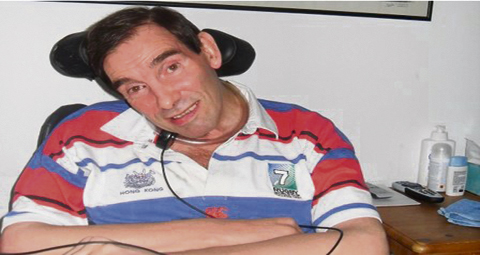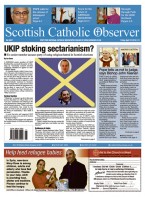BY Martin Dunlop | August 17 | ![]() 0 COMMENTS
0 COMMENTS ![]() print
print

SPUC welcomes court ruling against assisted suicide and euthanasia
High Court rejects request by patients with locked-in-syndrome for immunity from prosecution for any professional who helped them end their lives
A pro-life charity has welcomed a decision from the High Court yesterday rejecting the ‘right to die’ requests of two men with locked-in-syndrome.
Tony Nicklinson (above), 58, and a second man known as Martin, 47, mounted legal challenges in an attempt to secure immunity from prosecution for any professional who helped them to die.
Far-reaching consequences
Explaining the decision, Lord Justice Toulson, said that both cases were ‘deeply moving’ but added that ‘a decision to allow their claims would have consequences far beyond the present cases.’
“To do as Tony wants, the court would be making a major change in the law,” he said. “It is not for the court to decide whether the law about assisted dying should be changed and, if so, what safeguards should be put in place.
“Under our system of government these are matters for Parliament to decide.”
Decision welcomed
Paul Tully, general secretary of the Society for the Protection of Unborn Children (SPUC), the pro-life charity, which was officially represented in the high-profile Debbie Purdy and Diane Pretty assisted dying cases, backed yesterday’s decision.
“We welcome the High Court’s ruling, and we question whether those who have encouraged Mr Nicklinson and ‘Martin’ to pursue this legal action have the best interests of disabled people at heart,” he said. “The court has reiterated once again that direct, active, voluntary euthanasia is unlawful in English and European law.”
Mr Tully added that ‘to have allowed euthanasia would have seriously undermined both the laws against homicide and the right to life enshrined in the European Convention of Human Rights.’
“Those who are sick, vulnerable or disabled need the law to be robust in protecting the inviolability of every human life. That is why SPUC Pro-Life was officially represented before the courts in the Debbie Purdy and Diane Pretty cases. Compassion and solidarity are the humane and caring responses to ‘locked-in’ syndrome.
“To legalise killing of those who are suffering would adversely affect many, many people. We believe that Mr Nicklinson and ‘Martin’ have lives of equal value to any other member of society. We urge those around them to rise to the challenge of helping them realise their value and overcome their sense of hopelessness.”
Tragedy
Mr Nicklinson, a father-of-two, was left paralysed with locked-in-syndrome after a catastrophic stroke while on a business trip to Athens in 2005.
He communicates by blinking and has described his life as a ‘living nightmare’ since the stroke. He has said he will appeal against yesterday’s decision.
Mr Tully concluded, however, that he hopes yesterday’s High Court ruling ‘will help end the insidious campaign in the British courts to change the law on assisted suicide and euthanasia.’











